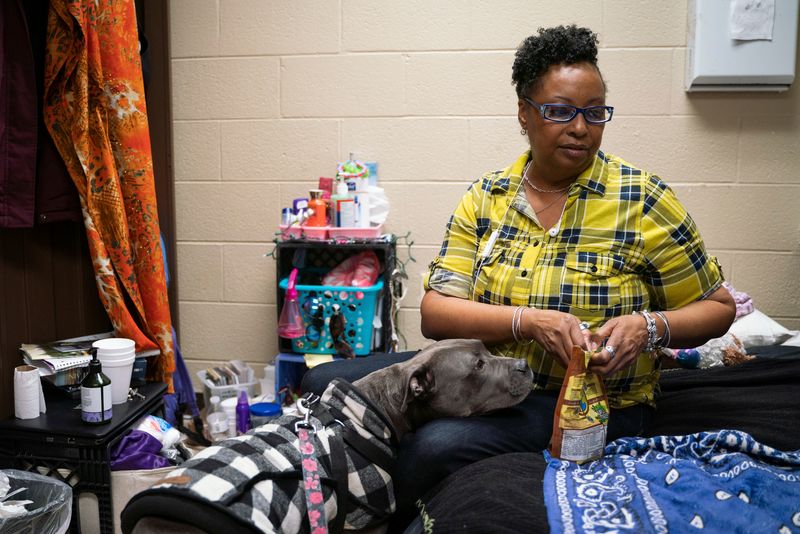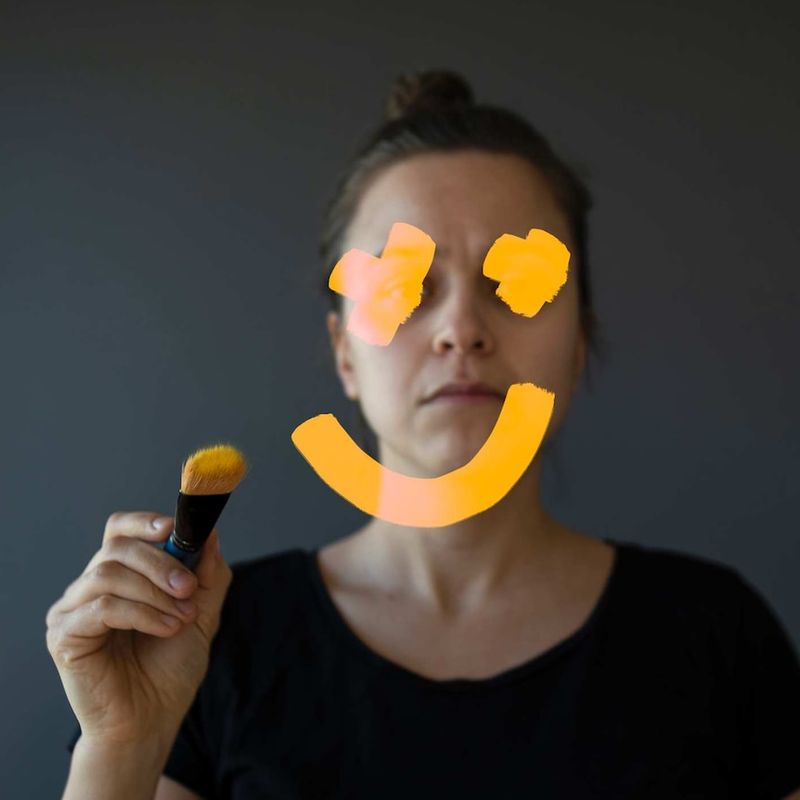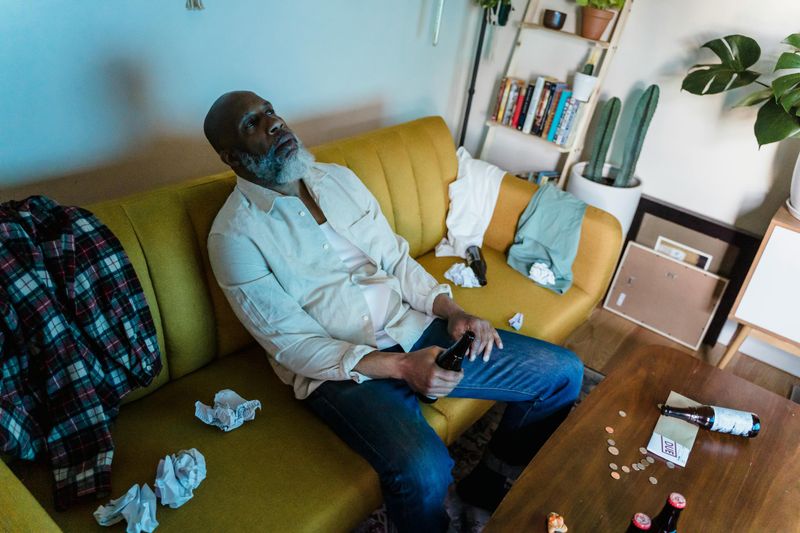Ever been told to “just look on the bright side” when all you wanted was someone to sit with you in the dark for a minute? That’s toxic positivity—when optimism turns into a mask you’re pressured to wear even when your heart is breaking.
If nobody has told you this yet, it’s okay to feel awful sometimes. Life isn’t a self-improvement seminar. It’s unpredictable and sometimes really unfair, and pretending otherwise can mess you up more than you realize.
Here’s the real talk on how relentless positivity does more harm than you’d think.
Each of these is a real way people get burned—emotionally, mentally, even physically—by the demand to be cheerful no matter what. You’re not alone if you’ve felt the sting. Let’s name it, see it, and maybe start healing for real, not just slapping on a smile.
1. Emotionally Bottle-Necked: When You’re Forced to Swallow Your Sadness
You ever get that feeling where your chest is tight, but when you try to talk about it, people just say, “Be positive!”? You end up stuffing everything down because you’re worried you’ll be labeled the downer.
After a while, it gets hard to even tell what you’re feeling. Are you sad, angry, numb? Who knows, because you haven’t let yourself feel it for ages. That pileup of emotions doesn’t disappear—it sits there, heavy and toxic, and waits for the right (or wrong) moment to explode.
It’s so easy to lose touch with yourself when you always try to be “okay.” That’s not healthy.
2. The Shame Spiral: When Sadness Feels Like a Moral Failing
Have you ever felt embarrassed for feeling sad, even in private? You know the guilt—the little voice that says, “You have so much, why are you upset?” That’s the shame spiral, and it’s fueled by the idea that negative emotions are a sign of weakness or selfishness.
So you try to hide it. You post a happy selfie, force yourself to smile at work, and tell everyone you’re fine. The shame grows bigger each time you dismiss your real feelings. It turns genuine pain into something dirty, something to be tucked away in the closet.
Sometimes, the hardest part is that you start believing it. You wonder if you’re broken for not being able to just “snap out of it.” Truth is, feeling sad doesn’t make you bad or broken—it makes you human. Toxic positivity just tries to convince you otherwise.
3. Stunted Growth: When Avoidance Blocks Real Change
“Just keep smiling, things will work out.” It sounds comforting, but it stops you in your tracks. Instead of dealing with what’s actually wrong, you’re told to pretend everything is fine.
Growth happens in the mess, in the tears, in the real questions. If you never let yourself feel lost or angry, how will you know what you actually want to fix? Avoidance keeps you rooted to the same spot, while pretending you’re moving forward.
I’ve wasted months acting like things were fine when I really needed to make big changes. That’s what gets stolen from you—the chance to actually grow. This keeps you stuck, stuck, stuck, every time it tells you to skip the messy part of becoming.
4. Broken Bridges: When Your Grief Gets Dismissed by Loved Ones
You open up about something painful, and instead of comfort, you get, “You’ll get over it—just think positive!” That’s the moment a tiny crack splits open in the relationship. It’s subtle, but you feel it.
Maybe next time, you don’t share at all. Instead, you carry your ache alone, because what’s the point? You realize they aren’t really listening—they’re just uncomfortable with your pain.
This is how trust erodes. You start to wonder if anyone can handle the real you. Relationships lose their honesty, replaced by fake cheerfulness and surface-level chat. That’s not intimacy, that’s avoidance dressed up as support.
5. The Pressure Cooker: When Happiness Feels Like a Job
Have you ever felt like being happy is another line on your to-do list? Like you have to clock in, show up, and never let your guard down?
You can’t let your real feelings slip, not even for a second. The pressure to be upbeat is exhausting, and it doesn’t give you space to just exist. Suddenly, happiness is something you’re expected to perform.
Alla fine, you’re so busy acting cheerful that you forget what real happiness even feels like. The pressure builds up inside, and sooner or later, something cracks. Trying to be the “happy one” all the time isn’t just hard, it’s impossible.
6. False Promises: When Positivity Sets Unrealistic Standards
Do you ever get tired of hearing that you can have anything if you “just stay positive?” It sounds great, but it’s not how life works. From time to time, things go wrong and no amount of optimism can change that.
This becomes a trap when it sets standards no one can meet. If you’re not happy, or if things don’t turn out, it feels like it’s your fault for not thinking enough happy thoughts.
That’s not fair, and it’s not true. Life is messy, unpredictable, and sometimes downright unfair. Believing you’re supposed to feel amazing all the time just sets you up for disappointment and self-blame.
7. The Elephant in the Room: Ignoring Real Problems
Everyone’s laughing, but you can feel the tension in the air. There’s something wrong, but nobody will touch it—they just keep cracking jokes and repeating, “Let’s keep it positive!”
Ignoring the real issue doesn’t make it disappear. It just hangs there, growing heavier, until you can’t pretend anymore. Eventually, the truth comes out in ways nobody expected—blowups, breakdowns, or silent exits.
Toxic positivity isn’t about fixing problems—it’s about hiding from them. And occasionally, pretending everything is fine can make the problem so much worse when it finally explodes.
8. Not Okay to Be Not Okay: When Feelings Get Invalidated
You hear, “Don’t cry, it’ll be fine,” and suddenly your sadness feels like an inconvenience. Instead of comfort, you get a reminder that your feelings aren’t allowed here.
You learn to hide your pain, to keep your struggles tucked behind closed doors. You wonder if you’re just being dramatic, or if you’re the only one who can’t “keep it together.”
But everyone hurts. Shutting down your feelings doesn’t make them go away—it makes you feel invisible. Your pain deserves space, even if nobody else wants to see it.
9. Unsteady Ground: Healthy Coping Gets Pushed Aside
When you’re told to “just think happy thoughts,” real coping skills get shoved to the side. Instead of journaling, calling a friend, or sitting with the hard stuff, you’re told to skip the hard parts.
Coping isn’t about pretending bad things don’t exist. It’s about learning to move through pain, not around it. Dismissing your feelings short-circuits the process and leaves you without tools for next time.
Real resilience is built by facing your struggles, not ignoring them. Nobody gets stronger by pretending the storm isn’t happening. You’re allowed to feel and heal, even if it’s messy.
10. The Social Media Trap: Comparing Behind the Scenes to Highlight Reels
Did you ever scrolled through Instagram and felt like you’re the only one not living in a perpetual sunset? It’s exhausting comparing your raw, unfiltered pain to everyone else’s highlight reel. The pressure to always be happy gets worse online—everyone’s a motivational speaker.
You start to wonder what’s wrong with you. Why can’t you keep up? Why does everyone else seem so much happier?
Truth: nobody’s life is perfect. Most people are faking it, too. The more toxic positivity floods your feed, the more alone you feel. That’s not connection; that’s a recipe for anxiety and self-hate.
11. Burnout Blues: When Faking It Drains You Dry
You keep telling yourself, “Just one more day. Smile through it.” But the act becomes harder every time. Faking happiness is like running a marathon with no finish line.
You start feeling tired all the time—emotionally, physically, even spiritually. When you’re forced to be “on” 24/7, your energy tanks and you don’t have anything left for the stuff that matters.
Burnout isn’t just about too much work—it’s about too much pretending. If you feel fried, it’s not your fault. It’s the cost of always performing happiness for the world. You deserve a break, for real.
12. Wounds That Don’t Heal: When You Can’t Face Real Pain
Everyone says, “Time heals all wounds,” but they leave out the part where ignoring pain just makes it harder to heal. When you’re always pressured to “look on the bright side,” you never get to really process your losses.
Pain pushed aside turns into scars that never quite fade. Healing takes honesty and time, not forced cheerfulness.
You can’t heal from what you refuse to feel. At times, real growth means sitting in the dark for a while. It’s not comfortable, but it’s the only way forward.
13. Silent Suffering: When Suppressed Feelings Pile Up
You become the master of silent suffering. Smiles in public, tears in private, pretending to be okay when your world feels upside down.
Over time, the weight of unspoken feelings gets heavier. It shows up in your body—tight shoulders, headaches, a heavy chest.
Pretending for too long can make you feel invisible, even to yourself. The world tells you to cheer up, but what you really need is someone to just listen, without fixing or judging. In certain moments, silence isn’t strength—it’s surrender.
14. The “Good Vibes Only” Lie: Excluding Real Life From the Room
Ever walked into a room and felt like your sadness was breaking the rules? The “Good Vibes Only” sign isn’t just décor—it’s a warning that real emotions aren’t welcome here.
You feel pressure to tuck away grief, anxiety, or anger so you “don’t bring everyone down.” The result? You end up isolated in a crowd, convinced you’re the problem for not fitting the mood.
Nobody can be happy all the time. Pretending otherwise just pushes real life out the door. Eventually, you start to wonder if you belong anywhere at all.
15. Feeling Like a Burden: When Asking for Help Gets Shamed
You want to ask for help, but the world says you should “handle it yourself” o “stay positive.” So you hesitate. You wonder if reaching out will just make you seem needy or weak.
It’s a lonely position—wanting support, but afraid of the judgment that might come with it. It makes you feel like your struggles are an inconvenience to others.
Needing help isn’t a flaw, it’s a fact of life. But the more you hear, “just stay strong,” the easier it is to stay quiet and suffer alone. That’s not strength—it’s heartbreaking.
16. Old Hurts, New Scars: When Problems Get Buried Instead of Solved
Moving on doesn’t mean moving past the pain if you never dealt with it in the first place. All that old hurt just tags along, showing up in new places—like a shadow you can’t escape.
Toxic positivity says: “Don’t look back.” But if you never face your wounds, they just come out sideways—resentment, mistrust, or fear that follows you into every new chapter.
Unsolved problems don’t disappear, they just wear new disguises. Real healing is messy, but pretending you’re fine just guarantees your pain keeps showing up.
17. The Mask Slips: Losing Yourself in the Act
After months (or years) of pretending, you start to forget who you even are. Every smile, every “I’m fine,” chips away at your real self until you’re not sure what’s left beneath the act.
It’s easy to lose touch with your own needs, dreams, and voice when you’re busy keeping everyone comfortable. The mask gets heavy. You wonder if anyone would even like the real you.
Pretending to be happy becomes a habit you can’t shake. But authenticity is brave, and it’s the only way back to yourself. Start small, and don’t be afraid to let the mask slip.


















